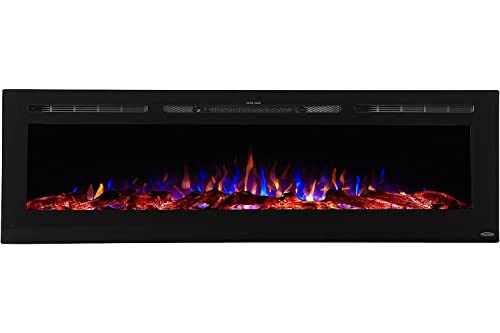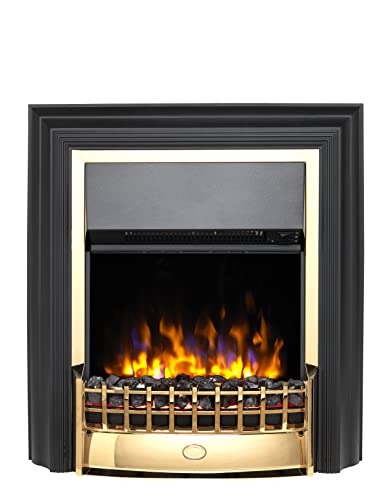What's The Job Market For Bioethanol Fireplace Professionals Like?
페이지 정보

본문
 The Benefits of an Ethanol Fireplace
The Benefits of an Ethanol FireplaceEthanol fireplaces are an excellent alternative to wood or gas fires because they don't need the use of a chimney or a flue. They also don't generate any smoke, ash or mess, and they can be easily moved between homes.
Use bio-ethanol only on the burners designed to burn the fuel. Other liquid fuels and gels could void the warranty of your burner.
Cost
The price of a bioethanol fireplace is depending on the type and style you choose. There are models ranging priced from a few hundred bucks to a few thousand, but they are typically less expensive than a wood or gas fireplace. Certain models are freestanding, while others can be attached to a fireplace or recessed into a wall. Ethanol fireplaces are also less environmentally harmful than fireplaces that burn wood.
Bio ethanol fires are very popular because they offer a natural, beautiful flame without any smoke or soot. They are suitable for almost any space, and are easy to maintain. However it is recommended to make use of bioethanol fuel that is specifically made for use with these fireplaces. Other types of fuel could damage the burner, thereby increasing the risk of fire. Additionally, you should not store flammable materials close to the bioethanol fire.
Ethanol fireplaces are fantastic for heating rooms, however they should not be relied on as your primary source of heat. They are more efficient than wood-burning fire places and can produce plenty of heat, about 2kW on average. This will not be enough to warm an entire home, but it will definitely warm up smaller rooms.
You should also factor in the costs of maintaining an ethanol fireplace. The fireplace should be stored in a safe location away from pets and children. Always follow the manufacturer's instructions for adding fuel, putting the flame out and allowing the flame to cool.
A fireplace that is ethanol-based can be a fantastic alternative to a wood-burning stove. The main advantage of this type of fire is that it does not require a chimney, meaning you will save on the installation and maintenance costs. Furthermore, it is more secure to use than other types of fireplaces. It is a good idea to speak to an expert before making a final decision. This means you can be certain that the fireplace will be set up properly and safely.
Environmental impact
A fireplace that is ethanol-powered is an eco-friendly alternative to traditional fireplaces that burn wood. It is powered by bioethanol, which is produced by fermenting the sugar and starch components from the waste products of plants like straw, corn and maize. The biofuel's liquid undergoes further distillation in order to make it efficiently and cleanly burn. This kind of fuel can be regarded as an energy source that is renewable and doesn't emit harmful odours or emissions. In addition, it is free of smoke and soot and is therefore an ideal choice for your home as opposed to other kinds of fires.
Ethanol fireplaces do not require chimneys and venting systems Therefore, they can be put in almost any room of your home. Most models come with remote control. A lot of them have a built-in cooling system to prevent the fuel from overheating. They can be used either as a primary source of heat or as an additional heating system. They are also a good option for those living in condos or apartments.
Bio ethanol fireplaces produce very little odours, making them a great choice for homes with people who suffer from asthma or allergies. This type of fireplace is safe to be used in a nursery or child's room. These fireplaces must be kept away from any flammable objects such as curtains or furniture.
The ease of use of an ethanol fire is among its main advantages. It is easier to install than a traditional wood burning fireplace, and does not require complicated installations or electrical connections. Moreover, the liquid fuel can be stored in a tank that is portable so that it is easily moved from room to. This allows you to take pleasure in the warmth of a fireplace without having tackle the mess of stacking, chopping, and cleaning up wood.
A bioethanol fireplace produces very little pollution. This is a fantastic choice for those who are concerned about the environment. In addition, these fireplaces are a great way to save energy and money.
Safety
A bioethanol fireplace could be a safer alternative to an open flame. They are easy to operate, generate less smoke and burn cleaner than other alternatives. However, as with all fireplaces and other appliances that produce fire they could be dangerous if used incorrectly. These fireplaces need special care, so make sure you read and follow the instructions.
When using a bio-ethanol fireplace make sure it's located in a well-ventilated area and at a distance from other combustible materials. Keep children and pets far away from the fire. Do not move it when the fire is still burning. This could trigger an explosion.
Bioethanol fireplaces might not be as hazardous as gas or wood marble fireplaces. However there are some guidelines for safety to ensure they are safe. This includes keeping all flammable objects at least 1500mm from the burner and not touching it while the fire is burning. It is also essential to not add fuel to a fire that's not approved.
The process of burning a bio-ethanol fireplace is very secure, particularly when you follow the guidelines. Basically, the fuel is then pumped into a vapour accelerator where it evaporates and is ignited by a filament. This method of combustion ensures that the fuel is fully burned, thereby eliminating unpleasant odours and harmful substances such as dioxins and ethanol fireplaces furans.
It is essential to read and adhere to the guidelines that are provided by the manufacturer prior to installing or operating an ethanol fireplace. Additionally, they should be kept away from fire-prone materials like curtains and newspapers. They should be kept at a reasonable distance from other appliances in the home and should not be placed in close proximity to sleeping animals or children.
The primary benefit of a bio ethanol fireplace is that it doesn't release any harmful fumes or odours making it an extremely safe option for families with children or pets. They are also more convenient than traditional fireplaces, since they don't require a chimney and do not cause carbon monoxide poisoning. They also have many benefits, such as a flexible installation space and the ability to move them around easily.
Installation
A bioethanol fireplace can add warmth and ambiance to any room. They come in a variety of designs and can be set up with a variety of ways. They can be wall-mounted freestanding, built-in or see-through. However, you should always go through the installation manual of the fireplace you are installing it. This will ensure that you don't encounter any issues with the installation and that your fireplace can be used safely.
The installation of bioethanol fireplaces is quite simple. It involves installing the burner and building frames to be inserted into the wall. The frame should be made of an unflammable material. This will stop the burner from igniting your wall. This will also help to stop the flame from spreading to other parts in the room. The frame must be attached to the wall with suitable screws and dowels.
Unlike other kinds of fireplaces, ethanol fires do not require a chimney or flue. This makes them a economical option for homeowners. They can also be put in any space and easily moved. Moreover, they do not produce any harmful emissions.
When properly used When used properly, a bioethanol fire is extremely secure. But as with all fires, they should be kept away from flammable surfaces and children. Additionally, the fuel must be kept in a safe place and the fire smothered prior to refueling it.
Ethanol fireplaces are easy to maintain and do not produce soot or ash. They are a great choice for those worried about the impact on the environment that traditional wood-burning ones. Ethanol fireplaces can also be an excellent alternative to electric fireplace or gas fireplaces.
 Bioethanol fireplaces are an excellent addition to any home. However they shouldn't be utilized as the primary source of heating. They are designed to provide warmth and create a cozy ambience however, they are not strong enough for heating an entire house. The best method of installing a bioethanol fireplace is to get an expert to complete the work.
Bioethanol fireplaces are an excellent addition to any home. However they shouldn't be utilized as the primary source of heating. They are designed to provide warmth and create a cozy ambience however, they are not strong enough for heating an entire house. The best method of installing a bioethanol fireplace is to get an expert to complete the work.- 이전글What The 10 Most Worst Medication For Inattentive ADHD Mistakes Of All Time Could Have Been Prevented 25.01.11
- 다음글건강한 신체, 건강한 마음: 균형 잡는 비법 25.01.11
댓글목록
등록된 댓글이 없습니다.